What it would take for Middle East to spill into all-out war
Fears of the Middle East spilling into a regional war are growing by the day. And one player is waiting for a single trigger.
ANALYSIS
Humiliated? Emasculated? Or playing a winning, long game? Iran and Hezbollah are hesitating to retaliate over a spate of devastating attacks, painting Israel as the aggressor in the process.
Fears of the Middle East spilling into a regional war are growing on an almost daily basis as Israel unleashes a campaign of attacks on terror organisation Hezbollah in Lebanon and beyond.
Overnight, an Israeli Defence Force (IDF) air raid on Lebanon’s capital, Beirut, killed Hezbollah’s chief of military operations, Ibrahim Aqil.
The IDF also claims the attack killed or wounded most of the senior commanders of the elite Radwan Forces ahead of a planned major incursion into northern Israel.
Prime Minister Benjamin Netanyahu and Defense Minister Yoav Gallant are preparing their nation for a high-intensity ground operation in Lebanon. All the invasion needs is a trigger to justify it.
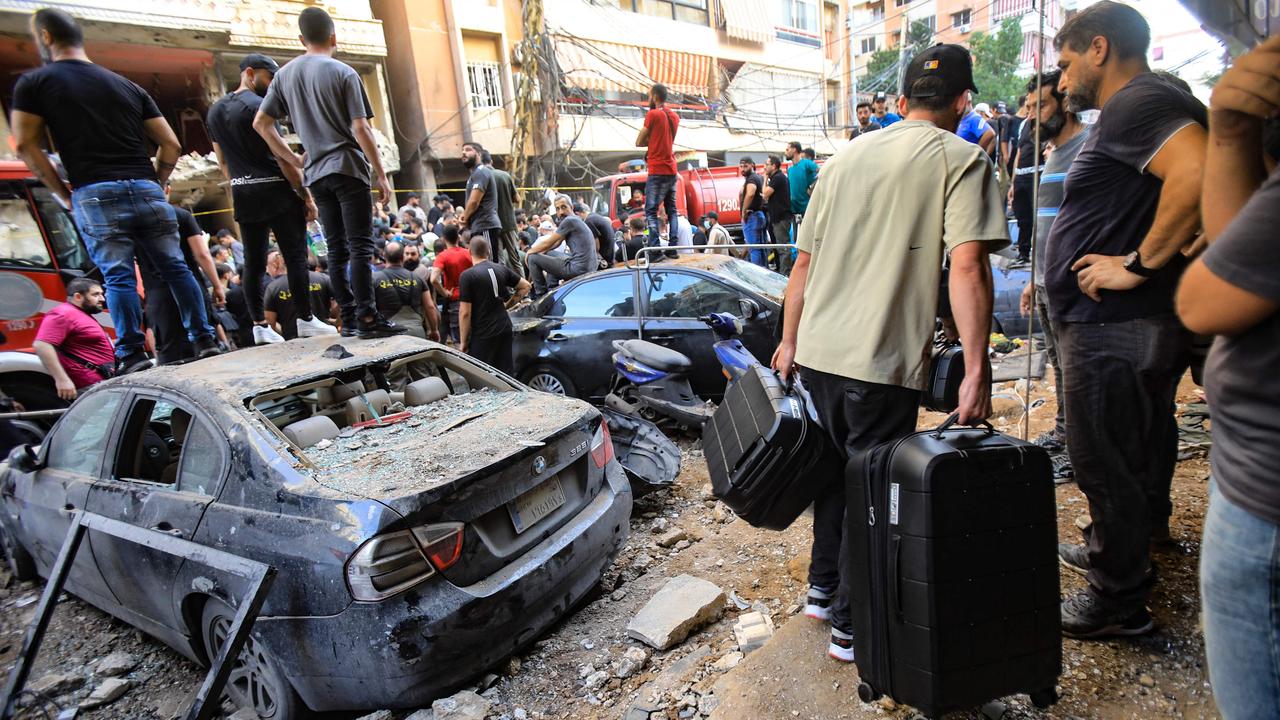
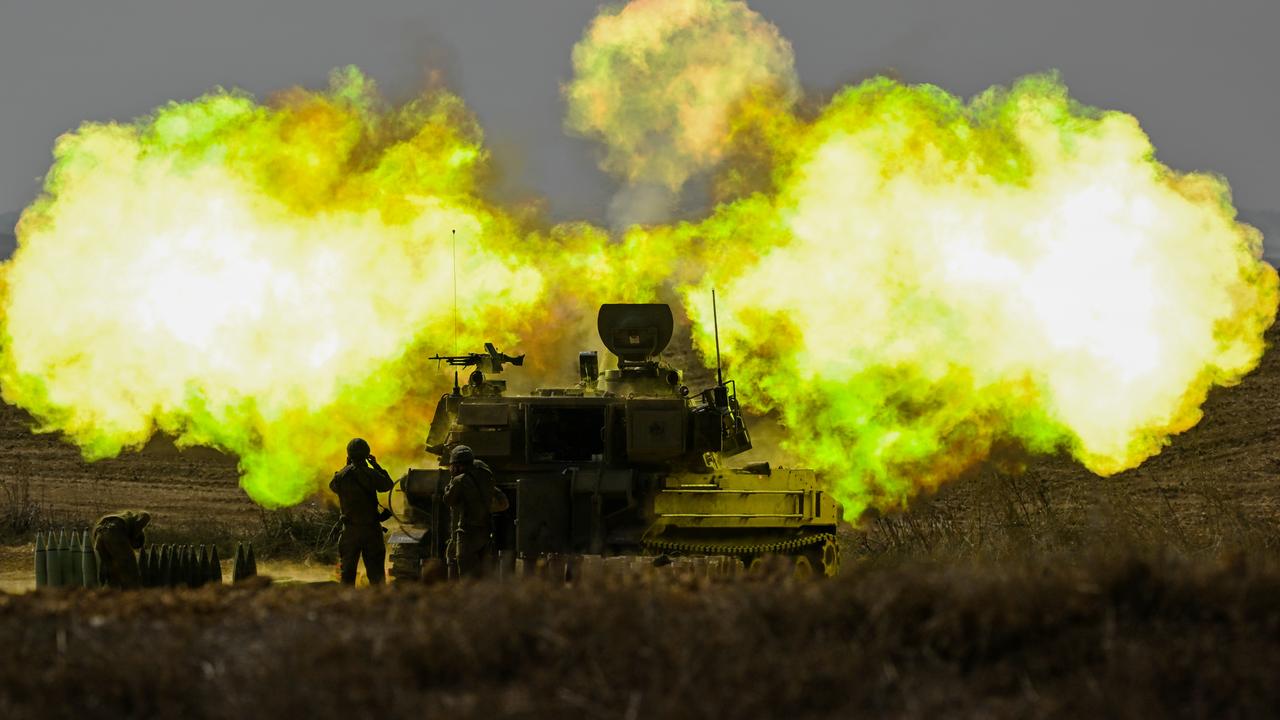
“In the new phase of the war, there are significant opportunities but also significant risks,” Israeli Defense Minister Yoav Gallant said shortly before the strike.
“Our goal is to ensure the safe return of Israel’s northern communities to their homes. As time goes by, Hezbollah will pay an increasing price.”
Both Hezbollah and its primary supporter, Iran, have promised a “crushing response” to Israel’s assassination campaign this week, which saw hundreds of booby-trapped personal pagers and thousands of handheld walkie-talkies explode in the hands of their users.
About 40 people were killed and 3000 wounded, many of them from the ranks of the Lebanese-based group’s militant wing – but also allegedly among its civilian medical, charity and family members.
But both are yet to respond to a major escalation on July 31 when the political leader of Hamas, Ismail Haniyeh, was assassinated while in Tehran to attend the inauguration of Iran’s new president.

This came just hours after the killing of Fuad Shukr, Hezbollah’s second-in-command, in another Israeli air strike on Beirut.
A month after the attacks, Iran’s top diplomat Abbas Araqchi insisted that a “measured and well-calculated” response would come. “We do not fear escalation, yet do not seek it – unlike Israel,” Araqchi said.
After Iran’s failed massed-missile attack on Israel in April and Hezbollah’s heavy losses among its leadership, their ability to respond may be limited. But it may also be political manoeuvring.
“Iran and Hezbollah’s choice to stick to the ‘response equation’ leaves Israel to decide if and when to start a major war,” argues Israeli political analyst Zvi Bar’el.
“And in view of Hezbollah’s behaviour, Israel will also have to deal with the international and internal legitimacy of such a war as long as Hezbollah doesn’t provide a reason to start it.”
Reputations on the line
“Aqil and the Radwan Force commanders we struck were the masterminds of and the force behind Hezbollah’s plan to execute an attack on Northern Israel,” IDF Rear Admiral Daniel Hagari said early this morning, Australian time.
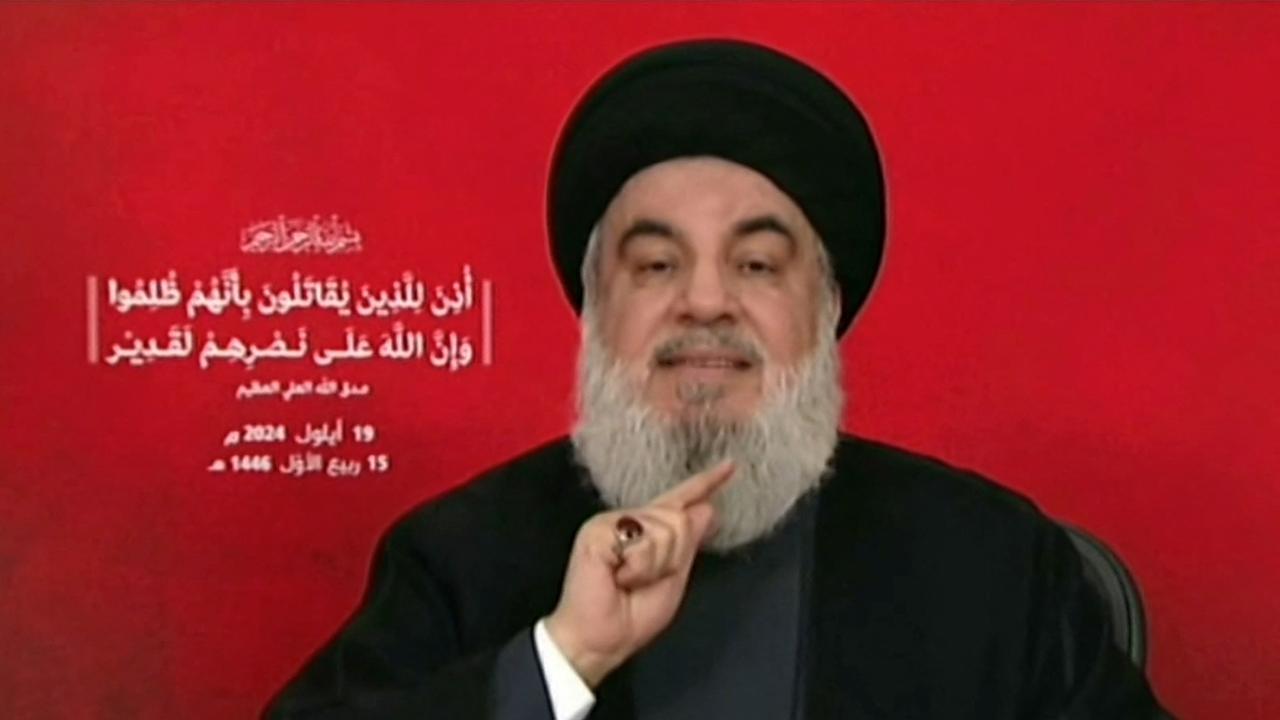
“As part of this plan, Hezbollah intended to infiltrate Israel, seize control of the communities in the Galilee, and to kill and kidnap Israeli civilians, much like Hamas did on October 7.”
How Hezbollah planned to achieve the tactical surprise needed to succeed in such an assault was not explained. On October 7, Hamas took advantage of Mr Netanyahu’s controversial decision to move IDF units away from the border with Gaza to assist illegal settlers in the occupied West Bank.
The border with Lebanon is now the main focus of IDF forces.
Hezbollah Secretary-General Hassan Nasrallah yesterday admitted his organisation had “suffered a major security and humanitarian blow” in the week’s attacks.
But he insisted his support for Hamas and Gaza would continue: “Our answer is in the name of the fatalities and the wounded, the Lebanon front will not stop until the aggression on Gaza stops, whatever the sacrifice, the results, the horizon.”
Bar’el says Nasrallah is well aware of the “trap” a major counter-attack would represent.
“Not only did he admit Hezbollah does not have the technology to produce a response that would befit the Israeli attack, he also refrained from elaborating on the “when, where and how” of the response,” Bar’el writes.
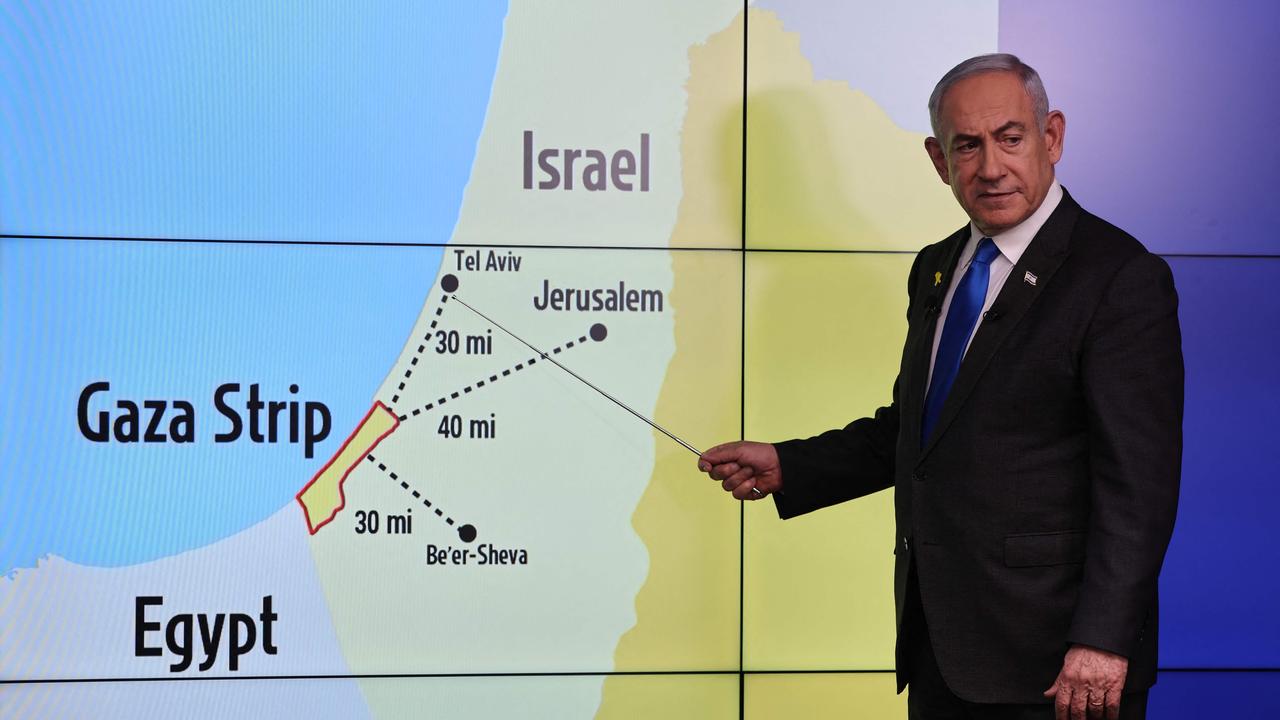
“He made do with the vague promise that it ‘will come’, but one can infer from his words that he does not intend to launch an all-out war.”
Instead, Nasrallah dared Mr Netanyahu to seize the “historic opportunity” and launch a war against Lebanon.
“Hezbollah, like Israel, entered the war in Gaza without a strategy for the day after the war,” Bar’el adds.
“But unlike Israel — which set itself a goal of destroying Hamas, removing the threats facing Gaza border communities, returning the hostages to Israel and, this week, also safely returning residents of the north to their homes — Nasrallah has only one goal: stopping the war in Gaza on conditions that would be jointly set by Israel and Hamas, without Hezbollah’s or Iran’s involvement.”
Finding an endgame
“On October 7, Sinwar’s terror surge set a trap for Israel into which Israel seemed to fall still bogged down almost a year later in Gaza with Hamas surviving,” Carnegie Endowment analyst Aaron Miller said on X, formally Twitter.
“Israel is now setting one for Hezbollah in Lebanon. But who will end up trapping whom?”
With Gaza reduced to rubble and the unfolding humanitarian crisis there attracting allegations of war crimes, Israel faces the question: what next?
A steadily escalating war of attrition has been unfolding across the Blue Line (the United Nations patrolled border between Lebanon and Israel) since Hezbollah unleashed a volley of rockets in support of Hamas’ surprise October 7 terror attack last year.
In recent weeks, Israel has switched its military emphasis away from the Gaza Strip in the south. On Wednesday, it announced it had completed the transfer of the 98th Division to the northern border zone.
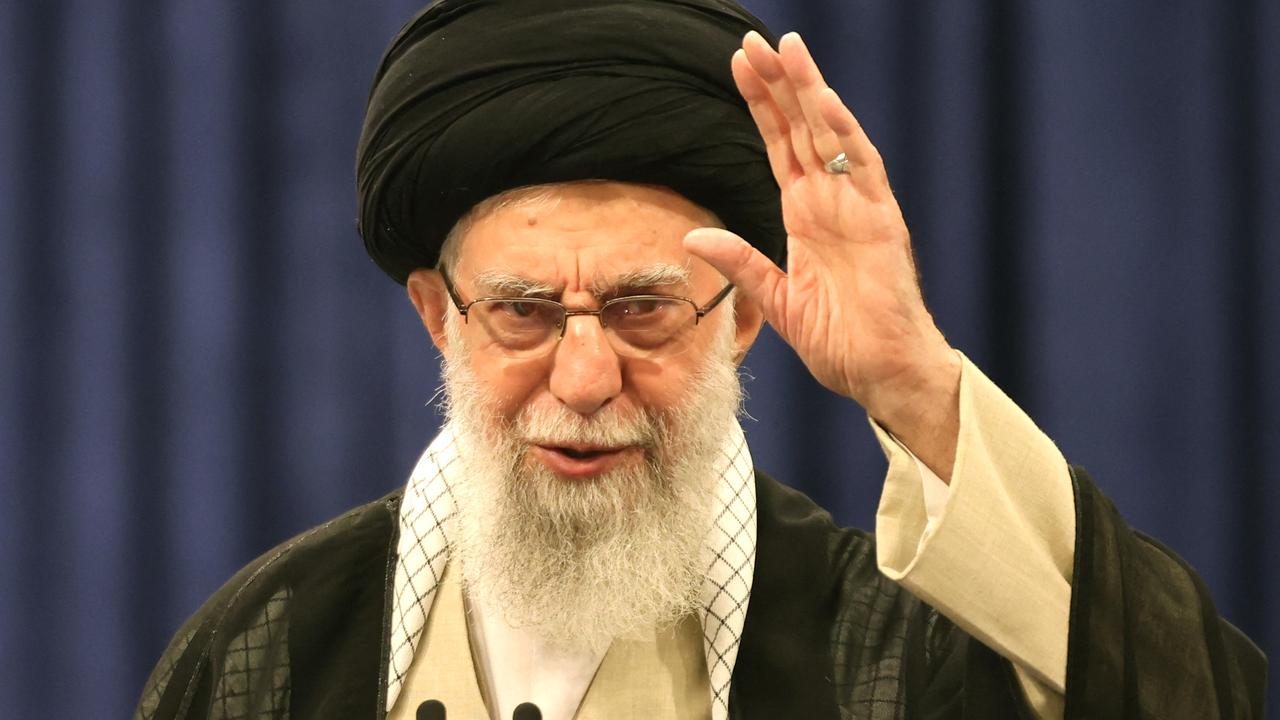
“For Netanyahu, the northern front is easier than Gaza politically – no hostages; no Palestinian Authority; no return of Palestinian prisoners; and fewer strains with the US,” says Millar. “The downside is obvious – risk of tripping into major escalation with Hezbollah causing terrible losses on the home front.”
He says “it’s magical thinking” to believe the crisis can still be solved with diplomacy.
“When two respected retired major generals from the centre-left, Yair Golan and Israel Ziv, talk about the need for a ground (operation) in southern Lebanon, you get the sense it’s only a matter of time,” Miller added.
But things could rapidly escalate to a level Israel has not experienced in almost 50 years.
“Such a war would not only involve Hezbollah, it would force Iran to provide Hezbollah with a protective envelope including direct military support,” Bar’el said.
“Iran has aspired to avert such a situation and built the ‘ring of fire’ so that its proxies will provide the fire and take the fire instead of Iran itself, in each of the local fronts.”
US Secretary of Defense Lloyd Austin told his Israeli counterpart Gallant in a phone call last night that the White House is concerned about the escalation. He reiterated only a diplomatic solution would enable residents to return to their homes on both sides of the border.
Meanwhile, the United Nations General Assembly this week made it clear global opinion is turning against Netanyahu when it voted in clear favour of a resolution calling for an immediate withdrawal from occupied Palestinian territory.
“Israel could find itself in a situation in which its military superiority will face American pressure and other international measures that could be enacted against it, like an arms embargo or sanctions by the Security Council,” Bar’el said.
Jamie Seidel is a freelance writer | @JamieSeidel






